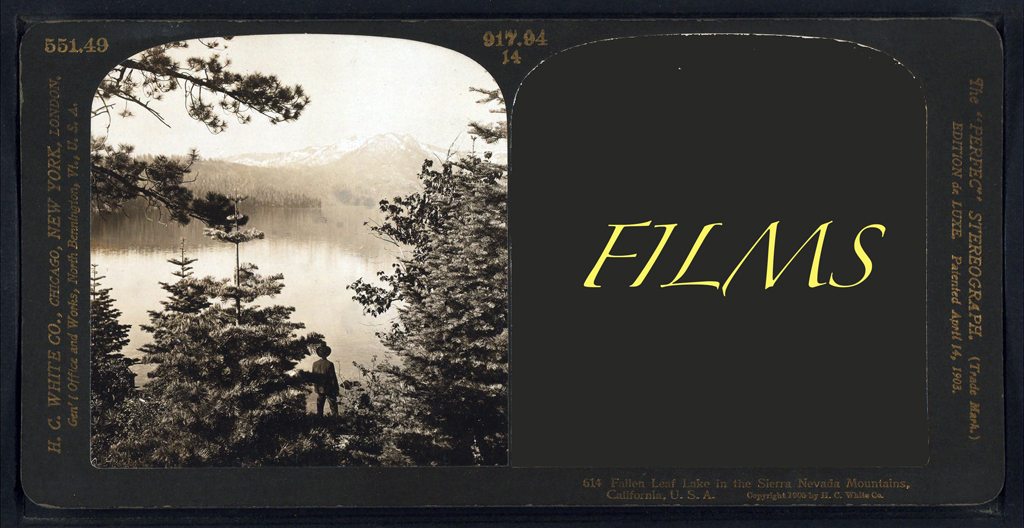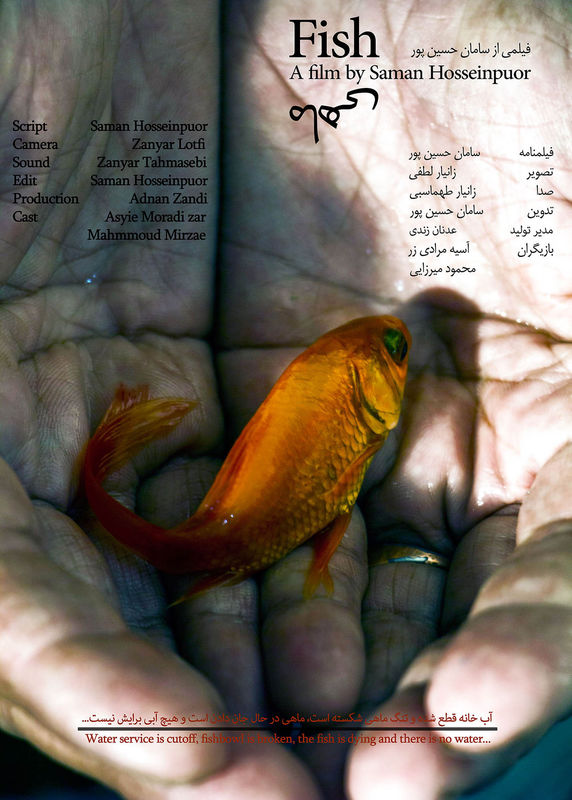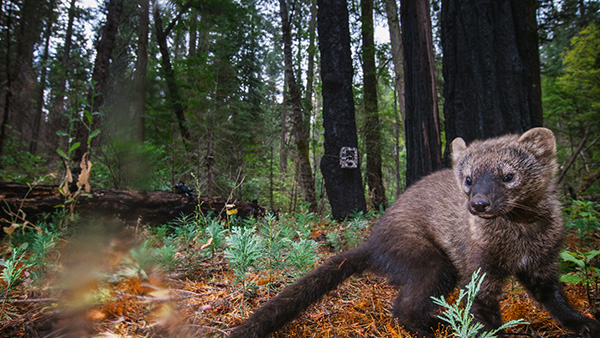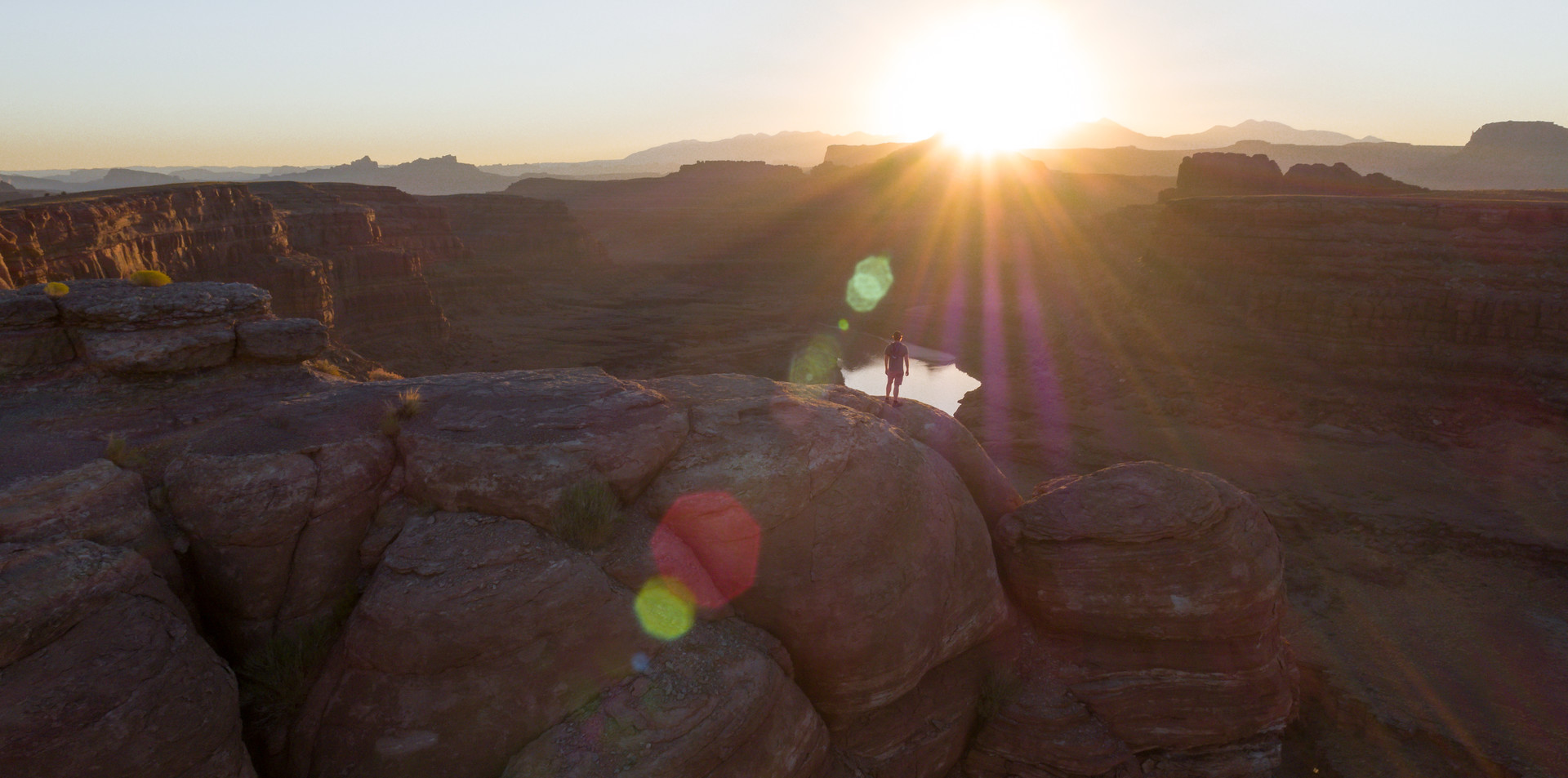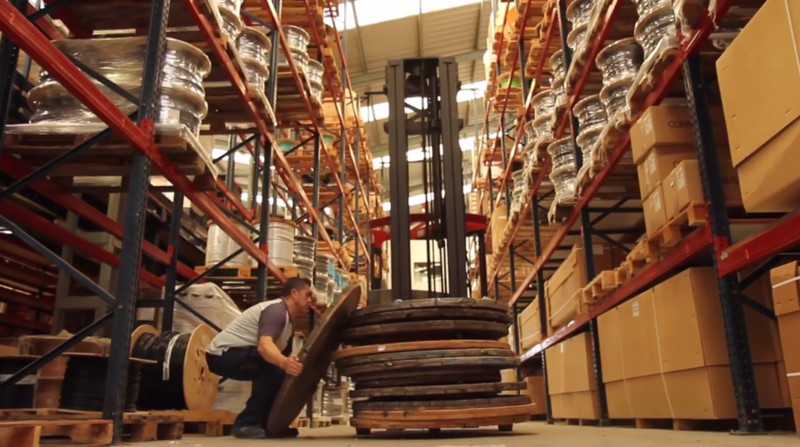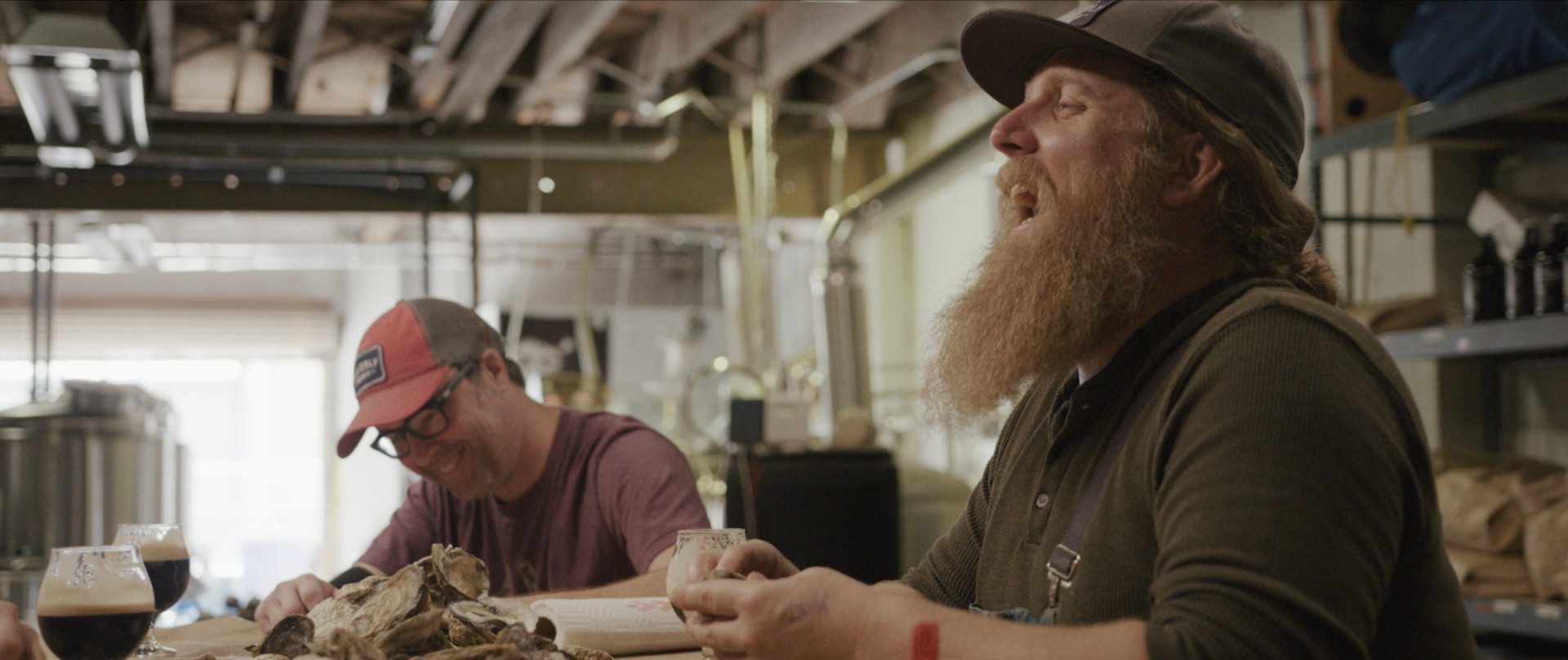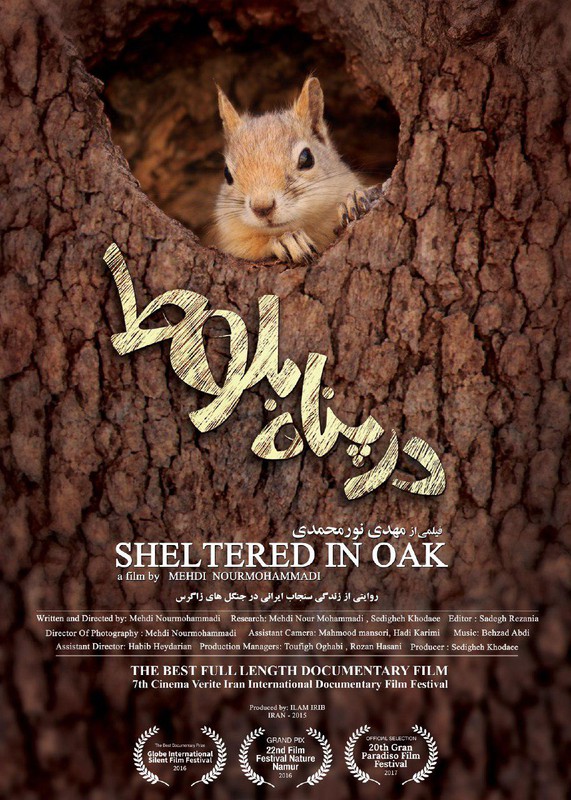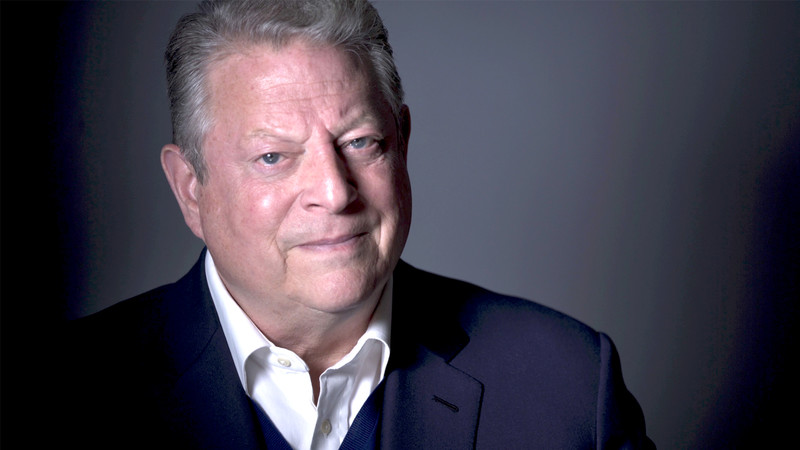| program | events | venues | tickets | sponsors |
2018 Films (Archive) | Return to Current Films
Aghanashini | The Beekeeper's Keeper | Blood Road | The Can | DugOut | A Fence and an Owner | FIFO | Fish | Forgotten but not Gone: The Pacific Fisher | Gardeners of the Forest | Hilde and the Chimps | The Last Pig | A Letter to Congress | L'estoc | The Local Oyster Stout | Sheltered in Oak | Turtle on a Fence Post | Time | Vanishing Coral
2018 Films
2017 Films
2016 Films
2015 Films
2014 Films
2013 Films
2012 Films
Aghanashini | Black Bart Playhouse | March 31, 2018
Aghanashini is a documentary about a river of the Western Ghats of India that still flows in its natural course. There are no dams on the Aghanashini to change its flow, nor industry along its path to pollute its water. When 'development' is the mantra of any government in India, this silent river is holding onto its ground, nurturing the land and forests, and providing life for hundreds of thousands of people along its flow.
Ashwini Kumar Bhat | 2017 | 41 min. | India
The Beekeeper's Keeper | Newsome Harlow | May 12, 2018 | Sponsored by Dr. Dorit Eliou
Born and raised in Manhattan, Liane Newton always had a fantasy farm in her head. After the death of her father, she set out to make that fantasy a reality. Newton now runs nycbeekeeping.org, a non-profit working to ensure that all beekeepers in NYC have access to training and mentoring.
Megan Rossman | 2017 | 7 min. | USA
Blood Road | Black Bart Playhouse | March 31, 2018 | sponsored by Penny Sarvis
Blood Road follows the journey of ultra-endurance mountain bike athlete Rebecca Rusch and her Vietnamese riding partner, Huyen Nguyen, as they pedal 1,200 miles along the infamous Ho Chi Minh Trail through the dense jungles of Vietnam, Laos, and Cambodia. Their goal: to reach the crash site and final resting place of Rebecca’s father, a U.S. Air Force pilot shot down over Laos some 40 years earlier. During this poignant voyage of self discovery, the women push their bodies to the limit while learning more about the historic ‘Blood Road’ they’re pedaling and how the Vietnam War shaped their lives in different ways.
Nicholas Schrunk | 2017 | 96 min. | USA
http://www.bloodroadfilm.com
The Can | Bistro Espresso | November 17, 2018
Young guy walking down the street, drinking soda. He throws the empty can in the box and misses. After that, the bank begins to pursue him.
Alexey Protsenko | 2016 | 3 mins. | Russian Federation

DugOut | Black Bart Playhouse | March 31, 2018 | Sponsored by Dr. Dorit Eliou
Ben and James have been on several 'adventures' together, from pulling a sofa across southern England to swimming the length of a knee deep river in Dorset. Making films about their trips has become a part of the journey. They wanted to build on these journeys in their latest project but also make something about more than themselves - to capture the beauty of the landscape, the people and the wildlife they encountered would have to be more important than any distance or number of miles they could travel. It was with this in mind that they came up with the idea of DugOut, an idea as simple as the name suggests: they would travel to the Ecuadorian Amazon, live with an indigenous community, learn from them how to build a canoe, then take that canoe on a journey… The film covers the two month trip, documenting their time in the Huaorani community as they built a dugout canoe, then the journey downstream through Ecuador's Yasuni region - one of the most biodiverse areas of the world.
Benjamin Sadd | 2017 | 40 min.| USA
return to top
A Fence and an Owner | Black Bart Playhouse | March 31, 2018
At the Ranney Ranch in arid Corona, New Mexico, adaptive multi-paddock grazing implemented during a 15 year drought is restoring soils and benefiting the environment.
Peter Byck | 2017 | 10 min.| USA
http://www.soilcarboncowboys.com/films
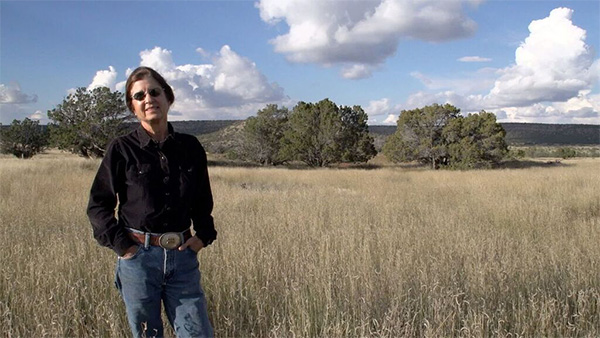
FIFO | Bistro Espresso | November 17, 2018
First in first out (FIFO) is a shelving technique used in supermarkets. Stephan must place the freshest products behind the oldest ones. Products nearing their sell-by date must be destroyed. When going to the bins in the basement, Stephan will have to face those who could still benefit from them, but who are excluded by the system. He will also have to confront who he was before getting a job.
Sacha Ferbus | 2017 | 12 min. | Belgium
Fish | Bistro Espresso | November 17, 2018
An old couple are living in an apartment, the man is sleeping and the woman is doing housework. The lady wants to change the fish tank’s water but it slips out of her hand and falls on the ground. They've ran out of water and there’s no water for the fish. But with the help of the man they find water for it.
Saman Hosseinpuor | 2016 | 4 mins. | Islamic Republic of Iran
Forgotten but not Gone: The Pacific Fisher | Bistro Espresso | November 17, 2018
In the late 19th and early 20th centuries, populations of the fisher (Pekania pennanti)—a forest-dwelling member of the weasel and otter family—were in steep decline across much of its native range of northern North America. Both fur trapping and habitat loss from logging and urbanization took a heavy toll. However, once trapping bans and timber harvest restrictions were put in place, the species rebounded in many regions. Unfortunately, that trend hasn’t carried over to the West Coast of the U.S., where an isolated population of fishers, known as the Pacific fisher, continues to struggle. Scientists estimate that only 4,000 Pacific fishers remain, with just 300 left in California’s Sierra Nevada Range. These individuals now face a new and rising threat: illegal marijuana grow sites that are cropping up on public lands. Growers use poisons to protect their plants from rodents, and these chemicals are indiscriminate killers.
Morgan Heim, Day's Edge Productions, BioGraphic | 2017 | 8 min. | USA
Gardeners of the Forest | Newsome Harlow | May 12, 2018| Sponsored by Dr. Dorit Eliou
For generations, Laos was known as the Land of a Million Elephants. Today, there are around 400 elephants left in Laos. If the Laotian elephants become extinct, not only does it mean a loss of one of the largest mammals on earth but also the loss for Laotian history and culture. This documentary will explore how the Chinese market, deforestation, and tourism all play a role in the imminent extinction of elephants in Laos.
Ceylan Carhoglu | 2017 | 15 min. | USA
Hilde and the Chimps | Newsome Harlow | May 12, 2018| Sponsored by Dr. Dorit Eliou
The love for chimpanzees takes Hilde on a journey from Norway to a drastically different part of the world. Deep in the Democratic Republic of Congo she travels to help a group of orphaned chimpanzees find the home they deserve. Rescued from animal traffickers, the 30 young chimps have lived in a safe but small enclosure. Moved by their plight, Hilde raised money from her village in Norway over five years to build a new enclosure for the young chimps so that they can feel grass beneath their feet and climb trees almost like they were wild chimps.
Alexander Sletten | 2017 | 54 min. | Norway
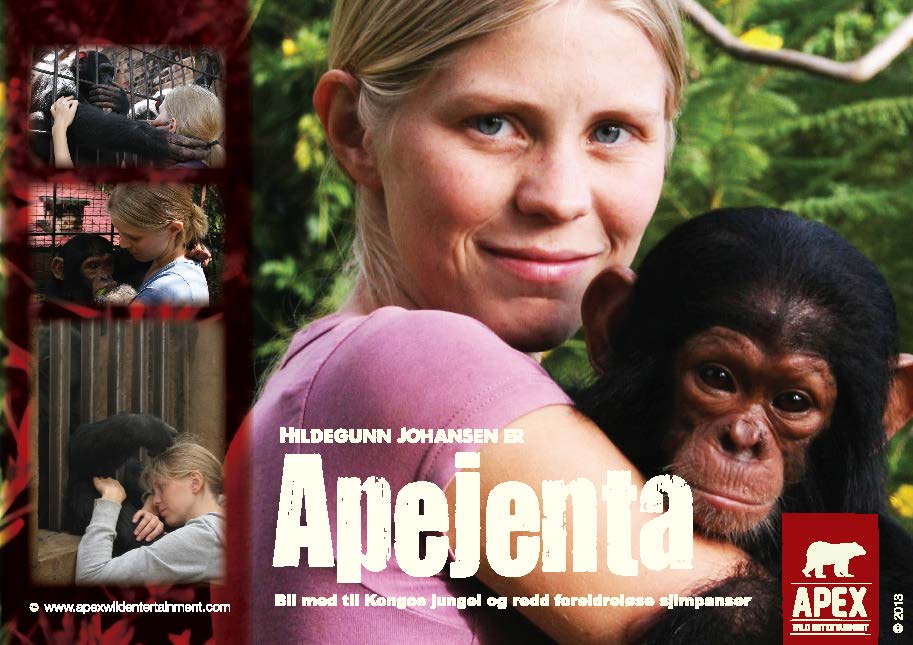
The Last Pig | Black Bart Playhouse | March 31, 2018
Through this personal journey, "The Last Pig" raises crucial questions about equality, the value of compassion and the sanctity of life. Comis’ soul-bearing narrative carries us through his final year of farming pigs, the struggle to reinvent his life, and the ghosts that will haunt him forever. "The Last Pig" is a lyrical meditation on what it means to be a sentient creature with the power to kill. Deeply immersive, the film follows a pig farmer through his final year of slaughtering pigs. Through sparse, intimate musings, the farmer reveals the growing conflict of a life spent “peddling in death.”
Allison Argo | 2017 | 52 mins. | USA
A Letter to Congress | Black Bart Playhouse | March 31, 2018
Wallace Stegner’s 1960 letter to Congress about the importance of wilderness is the framework for a new message, one in which our unified voice can help prevent the transfer of our most valuable heritage— our public lands— to private and corporate interests.
Read the full letter and learn more about Wallace Stegner. Take action.
Christopher Newman, Amani King, Dalia Burde | 2017 | 3 min. | USA
L'estoc | Bistro Espresso | November 17, 2018
"Problems can also be opportunities" Jordi Mayals. We discovered L'estoc on a back street of Barcelona and were so impressed with the philosophy and people behind the project that we decided to spend a few days learning about the work so we could share the story of L'estoc with everybody else.
Bessie Byrne | 2017 | 9 min. | Australia, Spain
The Local Oyster Stout | Black Bart Playhoue | March 31, 2018
An oyster farmer, a shucker, and a brewery collaborate on Maryland's first farm to table Oyster Stout beer, reviving a time-honored tradition of the industrial past and charting a future for sustainability in the Chesapeake.
Mark Burchick and Jena Richardson | 2017 | 8 mins. | USA
Sheltered in Oak | Bistro Espresso | November 17, 2018
An Iranian squirrel's life in oak trees of the Ilam Province's oak forest, with many dangers posed by fellow forest inhabitants and humans.
Majid Mohammaddoust | 2017 | 55 min. | Islamic Republic of Iran
Time | Bistro Espresso | November 17, 2018
One tree makes millions of matches, but when the time comes, only one match would be enough to burn millions of trees. Time is more powerfull than you.
Mahdi Mousavi Azad | 2017 | 2 min. | Islamic Republic of Iran
Turtle on a Fence Post | | Bistro Espresso | November 17, 2018
Former Vice President and climate advocate Al Gore takes us behind the scenes of the climate change denial movement and points to signs that we’re moving towards a clean energy economy.
Gabriel Diamond | 2017 | 4 min. | USA
Vanishing Coral | Bistro Espresso | November 17, 2018
"Vanishing Coral" reveals the devastating effects of warming oceans and bleaching events within the “coral triangle” of southeast Asia, and powerfully illustrates what some dedicated scientists and environmental activists are doing to save these unique coral populations.
"Vanishing Coral" comes at a pivotal moment, when coral reef populations are declining world-wide. Mass coral bleaching events due to elevated ocean temperatures occurred in 1998, 2002 and 2006, and coral bleaching is now expected to become an annual occurrence. The environmental costs are staggering: in 2016, one-third of the Great Barrier Reef along the eastern coast of Australia was decimated by a warm spell attributed to climate change.Coral reefs in the Florida Keys have declined by 80% over the past three decades. Scientists warn that all Caribbean coral could disappear in the next 20 years. Considered “the canary in the coal mine” of global warming, coral reefs are the most sensitive and diverse of all marine ecosystems. The film follows the work of marine biologist and coral expert Dr. Phil Dustan, who presents powerful insights and direct, visual evidence of the year-by-year dramatic decline in the coral triangle of southeast Asia, changes which are directly tied to the burning of fossil fuels, pollution and other human behaviors.
Photographed aboard the 100 year-old sailing vessel “Mir”, a floating headquarters for a young, international group of environmental activists, "Vanishing Coral" presents the insights and research of scientists and naturalists as they work with local Indonesian communities to protect the coral reefs."Vanishing Coral" offers an ecological alarm bell to the world, with specific suggestions on how viewers themselves can get involved and take action.
Stephen Olsson | 2017 | 26 min. | USA
